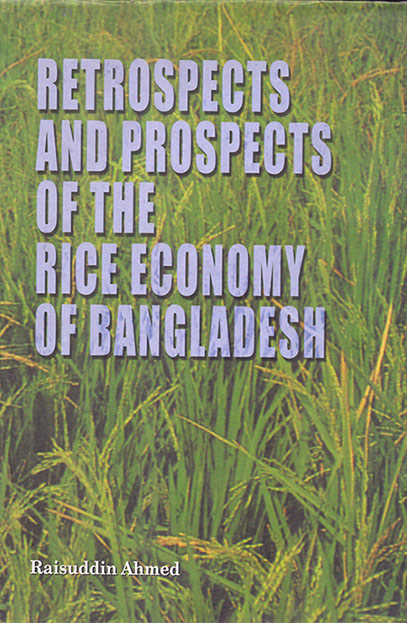
- Shop
- Academic & Non-fiction
- Retrospects and Prospects of the Rice Economy of Bangladesh
Retrospects and Prospects of the Rice Economy of Bangladesh
https://uplbooks.com/shop/9789840516018-retrospects-and-prospects-of-the-rice-economy-of-bangladesh-3031 https://uplbooks.com/web/image/product.template/3031/image_1920?unique=56f7a2e
| Language: English |
Tags :
Book Info
In Retrospects and Prospects of the Rice Economy of Bangladesh, Dr. Raisuddin Ahmed analyses and describes the progress in rice production during the last 20 years and the prospect of the rice economy in the first decade of the 21st century. The book demonstrates that the achievements have been significant but uneven, with a robust progress in the northwestern districts and a near-stagnation situation in northeast, central low lying, and coastal districts of Bangladesh. A gain in productivity, based on seed-fertilizer-irrigation technology has been the single largest source of growth in the past. Sustaining the overall progress attained so far and breaking the stagnation in the laggard districts will call for some drastic adjustments in the institutional mechanisms pertaining to irrigation and water control management and redirection in seed-fertilizer technology. Mechanical technology in cultivation is also poised to make a major difference in the future. Looking forward, the book suggests that rice will continue to play a dominant role in the agricultural economy of Bangladesh in the near future, though in the long run, increased diversification of agriculture into high-value products is expected. A declining pace of population growth and smaller income effects on the demand side, and continuation of technological diffusion on the supply side, may give Bangladesh an exportable surplus of rice by the year 2010. The challenge is for appropriate policy and institutional change to exploit the technological potential for increased productivity in the rice sector.

Raisuddin Ahmed
Raisuddin Ahmed is currently an Emeritus Research Fellow at the International Food Policy Research Institute (IFPRI), Washington DC, USA. He has served at IFPRI for 25 years and was the Director of the Markets and Structural Studies division of the Institute before becoming an Emeritus Research Fellow in 2001. Prior to his service at IFPRI, he worked at the Planning Commission and the Ministry of Agriculture of the Government of Bangladesh. At IFPRI, he conducted research on agricultural production, trade, marketing and pricing policies in Asia and Africa. He has also studied the effects of infrastructure and technological policies on agricultural productivity, rural employment, and rural income distribution. Dr. Ahmed has published many journal articles, research reports, and books. Among


